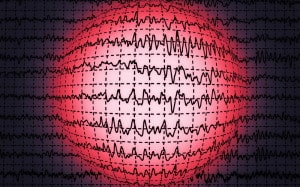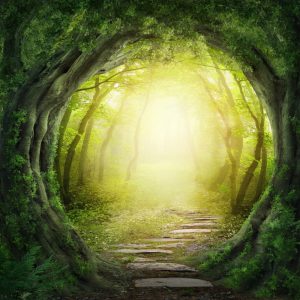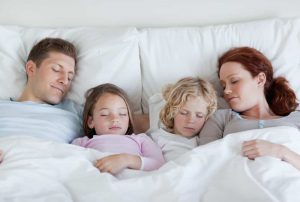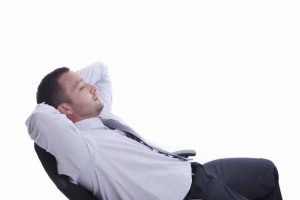 During his last sleep blog your Livonia, MI dentist, Dr. James Stewart, talked about why cats sleep so much. In today’s blog he is going to share some more information regarding cats and their sleep habits.
During his last sleep blog your Livonia, MI dentist, Dr. James Stewart, talked about why cats sleep so much. In today’s blog he is going to share some more information regarding cats and their sleep habits.
Catnap: Why Cats Sleep So Much
 Do you ever wish you were a cat? Then you would be able to lie around most of the day sleeping. They seem to know how to relax. They don’t have to fight rush-hour traffic, work all day, come home and make their own meals; all they do is sleep, sleep, sleep. In today’s sleep blog, your Livonia, MI dentist, Dr. James Stewart, explains why cats sleep so much.
Do you ever wish you were a cat? Then you would be able to lie around most of the day sleeping. They seem to know how to relax. They don’t have to fight rush-hour traffic, work all day, come home and make their own meals; all they do is sleep, sleep, sleep. In today’s sleep blog, your Livonia, MI dentist, Dr. James Stewart, explains why cats sleep so much.
REM Sleep FAQs
 Rapid eye movement, or REM sleep, was discovered in 1953 and has led to a wealth of research and information regarding the mysteries of sleep. Today, your Livonia, MI dentist, Dr. James Stewart shares some interesting REM sleep facts.
Rapid eye movement, or REM sleep, was discovered in 1953 and has led to a wealth of research and information regarding the mysteries of sleep. Today, your Livonia, MI dentist, Dr. James Stewart shares some interesting REM sleep facts.
The Purpose of Dreaming
 Since early history man has been fascinated with the occurrence of dreams. Before the means for dream research existed, people theorized as to the meaning of dreams and why we have them. Ninteenth and 20th century European psychoanalysts expanded on theories put forth by philosophers such as Aristotle and Plato, defining the function of dreaming as a safe way to act out our unconscious desires. When people recall their dreams, however, they don’t seem to plausibly fit any particular theory as of yet, and even today we are not sure why we dream. In today’s sleep blog, your Livonia, MI dentist, Dr. James Stewart talks about the purpose of dreaming.
Since early history man has been fascinated with the occurrence of dreams. Before the means for dream research existed, people theorized as to the meaning of dreams and why we have them. Ninteenth and 20th century European psychoanalysts expanded on theories put forth by philosophers such as Aristotle and Plato, defining the function of dreaming as a safe way to act out our unconscious desires. When people recall their dreams, however, they don’t seem to plausibly fit any particular theory as of yet, and even today we are not sure why we dream. In today’s sleep blog, your Livonia, MI dentist, Dr. James Stewart talks about the purpose of dreaming.
2014 Sleep in America Poll: Part 3
 In his last sleep blog, your Livonia, MI dentist, Dr. James Stewart, shared some results of this year’s National Sleep Foundation 2014 poll. He discussed the amount of sleep children get, and the role of electronics in the bedroom. In today’s blog, Dr. Stewart continues to share more of the results.
In his last sleep blog, your Livonia, MI dentist, Dr. James Stewart, shared some results of this year’s National Sleep Foundation 2014 poll. He discussed the amount of sleep children get, and the role of electronics in the bedroom. In today’s blog, Dr. Stewart continues to share more of the results.
2014 Sleep in America Poll: Part 2
 In his last sleep blog, your Livonia, MI dentist, Dr. James Stewart, shared some results of this year’s National Sleep Foundation 2014 poll. The poll results are chuck full of interesting and useful information. In today’s blog, Dr. Stewart continues discussing some of the results.
In his last sleep blog, your Livonia, MI dentist, Dr. James Stewart, shared some results of this year’s National Sleep Foundation 2014 poll. The poll results are chuck full of interesting and useful information. In today’s blog, Dr. Stewart continues discussing some of the results.
2014 Sleep in America Poll: Part 1
 Each year the National Sleep Foundation commissions a research service to conduct a national survey regarding sleep practices in the modern American family. The purpose of the poll this year was to examine beliefs held by modern families with school-aged children regarding sleep, and the sleep practices of these families. In today’s sleep blog, your Livonia, MI dentist, Dr. James Stewart, shares some of the results of this year’s National Sleep Foundation 2014 poll.
Each year the National Sleep Foundation commissions a research service to conduct a national survey regarding sleep practices in the modern American family. The purpose of the poll this year was to examine beliefs held by modern families with school-aged children regarding sleep, and the sleep practices of these families. In today’s sleep blog, your Livonia, MI dentist, Dr. James Stewart, shares some of the results of this year’s National Sleep Foundation 2014 poll.
Narcolepsy
 Do you seem to literally fall asleep at the drop of a hat–even when you should be awake? Does sleep overcome you when you least expect it? Do you suspect you might have narcolepsy? People suffering from narcolepsy experience excessive sleepiness during the day when they should be feeling alert. In today’s sleep blog, your Livonia, MI dentist, Dr. James Stewart, discusses narcolepsy.
Do you seem to literally fall asleep at the drop of a hat–even when you should be awake? Does sleep overcome you when you least expect it? Do you suspect you might have narcolepsy? People suffering from narcolepsy experience excessive sleepiness during the day when they should be feeling alert. In today’s sleep blog, your Livonia, MI dentist, Dr. James Stewart, discusses narcolepsy.
Power Naps
 During the Industrial Revolution laborers worked long and hard. Today many people have white collar jobs sitting in front of a computer for eight hours a day. What happens when people get sleepy? Can a power nap really make a difference in your energy level and productivity? And what exactly is a power nap? In today’s sleep blog, your Livonia, MI dentist, Dr. James Stewart, explains what a power nap is and how they can be beneficial.
During the Industrial Revolution laborers worked long and hard. Today many people have white collar jobs sitting in front of a computer for eight hours a day. What happens when people get sleepy? Can a power nap really make a difference in your energy level and productivity? And what exactly is a power nap? In today’s sleep blog, your Livonia, MI dentist, Dr. James Stewart, explains what a power nap is and how they can be beneficial.
Monophasic Sleep Pattern
 Have you ever heard of monophasic and polyphasic sleepers? While 85 percent of all mammals are polyphasic sleepers, humans fall in the minority of monophasic sleepers. But it wasn’t always that way. There are several theories as to when humans went from being polyphasic sleepers to monophasic sleepers. One theory holds that it was back some time between 70,000 and 40,000 BC that Neanderthal man shifted from a polyphasic to a monophasic sleep pattern. Another theory holds that it was due to the long work hours incorporated during the Industrial Revolution. Regardless of when and why, monophasic sleep does not appear to be natural for humans, nor the best way to sleep. In today’s sleep blog, your Livonia, MI dentist, Dr. James Stewart, discusses sleep patterns.
Have you ever heard of monophasic and polyphasic sleepers? While 85 percent of all mammals are polyphasic sleepers, humans fall in the minority of monophasic sleepers. But it wasn’t always that way. There are several theories as to when humans went from being polyphasic sleepers to monophasic sleepers. One theory holds that it was back some time between 70,000 and 40,000 BC that Neanderthal man shifted from a polyphasic to a monophasic sleep pattern. Another theory holds that it was due to the long work hours incorporated during the Industrial Revolution. Regardless of when and why, monophasic sleep does not appear to be natural for humans, nor the best way to sleep. In today’s sleep blog, your Livonia, MI dentist, Dr. James Stewart, discusses sleep patterns.






